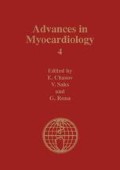Abstract
The purpose of these experiments was to assess effects of cardiac work and leucine in hearts supplied only glucose or substrate and hormone mixtures that simulated plasma. Rates of protein degradation greatly exceeded protein synthesis in Langendorff preparations supplied glucose. This severely negative nitrogen balance was brought closer to zero by provision of more complete substrate mixtures. Cardiac work further improved the nitrogen balance by stimulating protein synthesis in hearts supplied glucose (mixture 1), glucose-insulin-glucagon-lactate-β-hydroxybutyrate (mixture 2), or palmitate-β-hydroxybutyrate-glucose (mixture 3) and inhibiting protein degradation in hearts supplied glucose. Cardiac work did not affect the rates of either protein synthesis or degradation in hearts provided insulin-lactate-glucose (mixture 4). The increase in protein synthesis was associated with increased rates of peptide chain initiation. Addition of 1 mM leucine had an additional effect to restore nitrogen balance to zero or to achieve positive balance in working hearts supplied substrate and hormone mixture 2.
Access this chapter
Tax calculation will be finalised at checkout
Purchases are for personal use only
Preview
Unable to display preview. Download preview PDF.
References
Buse, M. G., Atwell, R., and Mancusi, V. 1979. In vitro effect of branched chain amino acids on the ribosomal cycle in muscles of fasted rats. Horm. Metab. Res. 11:289–292.
Chua, B., Siehl, D. L., Fuller, E. O., and Morgan, H. E. 1980. Branch chain amino acids and protein turnover in heart. In: Fourth USA-USSR Symposium on Myocardial Metabolism, pp. 305–324. U.S. Dept. of Health and Human Services (NIH Publication No. 80–2017), Bethesda.
Chua, B. L., Siehl, D. L., and Morgan, H. E. 1979. Effect of leucine and metabolites of branched-chain amino acids on protein turnover in heart. J. Biol. Chem. 254:8358–8362.
Chua, B., Siehl, D. L., and Morgan, H. E. 1980. A role for leucine in the regulation of protein turnover in working rat hearts. Am. J. Physiol. 239:E510–E514.
Chua, B., Watkins, C., Siehl, D. L., and Morgan, H. E. 1978. Effect of epinephrine and glucagon on protein turnover in perfused rat heart. Fed. Proc. 37:540.
Hems, R., Ross, B. D., Berry, M. N., and Krebs, H. A. 1966. Gluconeogenesis in the perfused rat liver. Biochem. J. 101:284–292.
Hjalmarson, Å. C., and Isaksson, O. 1972. In vitro work load and rat heart metabolism. I. Effect of protein synthesis. Acta Physiol. Scand. 86:126–144.
Hjalmarson, Å. C., and Isaksson, O. 1972. In vitro work load and rat heart metabolism. IV. Effect on ribosomal aggregation. Acta Physiol. Scand. 86:342–352.
Kao, R., Rannels, D. E., Whitman, V., and Morgan, H. E. 1978. Factors accounting for growth and atrophy of the heart. In: T. Kobayashi, Y. Ito, and G. Rona (eds.), Recent Advances in Studies on Cardiac Structure and Metabolism. Vol. 12: Cardiac Adaptation, pp. 105–113. University Park Press, Baltimore.
Lamprecht, W. I., and Trautschold, I. 1965. Determination with hexokinase and glucose-6-phosphate dehydrogenase. In: H. U. Bergmeyer (ed.), Methods of Enzymatic Analysis, pp. 543–551. Academic Press, New York.
McKee, E. E., Cheung, J. Y., Rannels, D. E., and Morgan, H. E. 1978. Measurement of the rate of protein synthesis and compartmentation of heart phenylalanine. J. Biol. Chem. 253:1030–1040.
Millward, D. J. 1980. Protein turnover in skeletal and cardiac muscle during normal growth and hypertrophy. In: K. Wildenthal (ed.), Degradation Processes in Heart and Skeletal Muscle, pp. 161–199. Elsevier/North Holland Biomedical Press, Amsterdam.
Morgan, H. E., Chua, B. H. L., Fuller, E. O., and Siehl, D. L. 1980. Regulation of protein synthesis and degradation during in vitro cardiac work. Am. J. Physiol. 238:E431–E442.
Morgan, H. E., Earl, D. C. N., Broadus, A., Wolpert, E. B., Giger, K. E., and Jefferson, L. S. 1971. Regulation of protein synthesis in heart muscle. I. Effect of amino acid levels on protein synthesis. J. Biol. Chem. 246:2152–2162.
Morgan, H. E., Jefferson, L. S., Wolpert, E. B., and Rannels, D. E. 1971. Regulation of protein synthesis in heart muscle. II. Effect of amino acid levels and insulin on ribosomal aggregation. J. Biol. Chem. 246:2163–2170.
Neely, J. R., Liebermeister, H., Battersby, E. J., and Morgan, H. E. 1967. Effect of pressure development on oxygen consumption by isolated rat heart. Am. J. Physiol. 212:804–814.
Rannels, D. E., Hjalmarson, Å. C., and Morgan, H. E. 1974. Effects of non-carbohydrate substrates on protein synthesis in muscle. Am. J. Physiol. 226:528–539.
Rannels, D. E., Kao, R., and Morgan, H. E. 1975. Effect of insulin on protein turnover in heart muscle. J. Biol. Chem. 250:1694–1701.
Schreiber, S. S., Briden, K., Oratz, M., and Rothschild, M. A. 1966. Protein synthesis in the overloaded heart. Am. J. Physiol. 211:314–318.
Schreiber, S. S., Oratz, M., Evans, C., Reff, F., Klein, I., and Rothschild, M. A. 1973. Cardiac protein degradation in acute overload in vitro. Reutilization of amino acids. Am. J. Physiol. 224:338–345.
Sherwin, R. S. 1978. Effect of starvation on the turnover and metabolic response to leucine. J. Clin. Invest. 61:1471–1481.
Taegtmeyer, H., Hems, R., and Krebs, H. A. 1980. Utilization of energy-providing substrates in the isolated working rat heart. Biochem. J. 186:701–711.
Zak, R., Martin, A. F., Reddy, M. K., and Rabinowitz, M. 1976. Control of protein balance in hypertrophied cardiac muscle. Circ. Res. 38(Suppl. 1): 145–150.
Author information
Authors and Affiliations
Editor information
Editors and Affiliations
Rights and permissions
Copyright information
© 1983 Springer Science+Business Media New York
About this chapter
Cite this chapter
Chua, B., Siehl, D.L., Fuller, E.O., Morgan, H.E. (1983). Effects of Cardiac Work and Leucine on Protein Turnover. In: Chazov, E., Saks, V., Rona, G. (eds) Advances in Myocardiology. Springer, Boston, MA. https://doi.org/10.1007/978-1-4757-4441-5_9
Download citation
DOI: https://doi.org/10.1007/978-1-4757-4441-5_9
Publisher Name: Springer, Boston, MA
Print ISBN: 978-1-4757-4443-9
Online ISBN: 978-1-4757-4441-5
eBook Packages: Springer Book Archive

